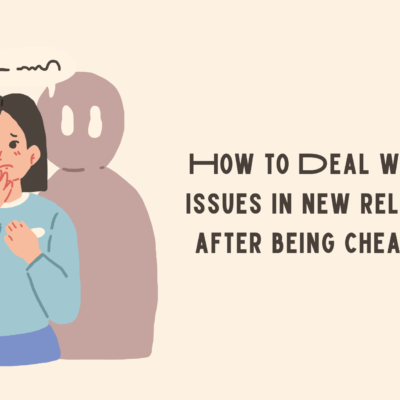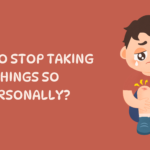How to Deal with trust issues in new relationship after being cheated on: Being cheated on can be one of the most painful experiences in a relationship. It shatters your trust, damages your self-esteem, and makes it difficult to believe in love again. When you enter a new relationship after experiencing infidelity, trust issues often follow. You might find yourself overthinking, doubting your partner, or fearing betrayal again.
However, while trust issues are understandable, they can also create unnecessary tension and distance in a new relationship. The key to moving forward is to heal from past wounds, rebuild your confidence, and develop healthy ways to trust again. This article explores why trust issues arise after betrayal and how to overcome them in a new relationship.
Also Read:
- How to Deal with a Toxic Spouse?
- Ways to Build Trust with Your Partner.
- How to Stop Doubting Your Relationship?
Why Do Trust Issues Happen After Being Cheated On?
Trust issues don’t just appear out of nowhere; they are a natural response to the trauma of betrayal. Here are some common reasons why people struggle with trust in a new relationship after being cheated on:
1. Fear of Being Hurt Again
Once you’ve been betrayed, your mind wants to protect you from experiencing the same pain. This can make you overly cautious or suspicious in a new relationship.
2. Low Self-Esteem
Cheating can make you question your worth. You may wonder, “Was I not good enough?” These self-doubts can make it harder to believe that a new partner will stay loyal.
3. Overgeneralization
One person’s betrayal doesn’t mean everyone will cheat, but it’s easy to assume that “all men/women are the same.” This belief can prevent you from giving a new relationship a fair chance.
4. Overanalyzing Everything
After experiencing infidelity, you may start reading too much into small things—delayed texts, canceled plans, or a change in behavior—assuming the worst even when there’s no real reason to worry.
5. Emotional Triggers
Certain situations may remind you of past betrayal, triggering old emotions. For example, if your ex used to lie about working late and your new partner does the same, you might feel anxious even if they are being honest.
Now that we understand why trust issues arise, let’s discuss how to overcome them and build a healthy new relationship.
How to Overcome Trust Issues in a New Relationship
1. Acknowledge Your Pain Without Letting It Control You
It’s okay to feel hurt and scared. Ignoring your emotions won’t make them disappear. Instead, recognize that your trust issues stem from past betrayal, not from your new partner’s actions.
Action Tip: Whenever you feel anxious, remind yourself: “This fear is based on my past, not my present reality.”
2. Heal Before Entering a New Relationship
Jumping into a new relationship too soon can make trust issues worse. If you haven’t processed your emotions, you might carry old wounds into a new relationship, creating unnecessary problems.
Action Tip: Before committing to someone new, ask yourself: “Am I emotionally ready to trust again, or am I still carrying pain from my past?”
3. Communicate Openly with Your New Partner
Your partner isn’t a mind reader. If they don’t know what you’ve been through, they won’t understand why certain things trigger you. Be honest about your past, but don’t expect them to “fix” your trust issues.
Action Tip: Instead of accusing or assuming, express your feelings calmly. For example, say: “I’ve been hurt in the past, so sometimes I struggle with trust. I don’t want to doubt you, but I need reassurance sometimes.”
4. Avoid Comparing Your New Partner to Your Ex
Your new partner is not your ex. It’s unfair to hold them accountable for someone else’s mistakes.
Action Tip: Whenever you catch yourself thinking, “My ex used to do this, so my new partner must be the same,” remind yourself that every person and relationship is different.
5. Set Healthy Boundaries Without Being Controlling
Boundaries help build trust, but excessive control can push your partner away. Instead of demanding constant updates or checking their phone, focus on healthy ways to feel secure.
Action Tip: Have a conversation about what makes you feel safe in a relationship. For example, instead of saying, “You must always text me back immediately,” say, “I appreciate when we check in with each other during the day.”
6. Give Trust Gradually
Trust doesn’t happen overnight, especially after betrayal. Instead of forcing yourself to trust fully right away, allow it to build naturally over time.
Action Tip: Notice small, consistent actions from your partner that show reliability, honesty, and care. Trust is earned through patterns of behavior, not words alone.
7. Challenge Negative Thoughts
When you have trust issues, your mind may create worst-case scenarios even when there’s no real evidence. Learning to challenge these thoughts can help you gain control over your emotions.
Action Tip: When a negative thought arises, ask yourself:
- “Do I have actual proof that something is wrong, or am I assuming?”
- “Is this thought based on my past, or is my current partner actually doing something untrustworthy?”
8. Focus on the Present, Not the Past
Your past experiences should not define your future. If you constantly live in fear of being cheated on again, you won’t be able to enjoy your new relationship.
Action Tip: Practice mindfulness techniques like deep breathing or journaling to help stay focused on the present moment instead of reliving past pain.
9. Don’t Let Fear Control Your Decisions
Sometimes, fear makes people push away a good partner before they get hurt. You may think, “If I leave first, I won’t have to experience betrayal again.” But this can cause you to miss out on a great relationship.
Action Tip: Instead of making decisions based on fear, ask yourself: “Is this person actually showing signs of dishonesty, or am I reacting out of fear?”
10. Consider Professional Help If Needed
If trust issues are overwhelming, therapy can help. A professional can guide you through your emotions and help you build healthier relationship patterns.
Action Tip: Seeking help doesn’t mean you’re weak. It means you’re actively working to heal and grow. Therapy can provide coping strategies to manage trust issues effectively.
What If Your New Partner is Actually Untrustworthy?
While trust issues are often based on past wounds, sometimes a new partner may genuinely show red flags. Here’s how to tell the difference:
Signs Your Fear is Based on Your Past:
- Your partner is open, honest, and consistent, but you still feel anxious.
- You worry without actual proof.
- You assume the worst based on past experiences, not current behavior.
Signs Your Partner Might Be Untrustworthy:
- They are secretive about their phone or whereabouts.
- They frequently lie or avoid answering questions.
- They gaslight you, making you doubt your own instincts.
If you notice real warning signs, it’s okay to re-evaluate the relationship. Trust should be given where it is earned.
Final Thoughts
Trust issues after being cheated on are natural, but they don’t have to define your future relationships. By healing from past pain, communicating openly, and gradually rebuilding trust, you can experience love again without fear.
Remember, your past does not determine your future. With time, patience, and the right partner, trust can be restored, and you can enjoy a happy, fulfilling relationship.








